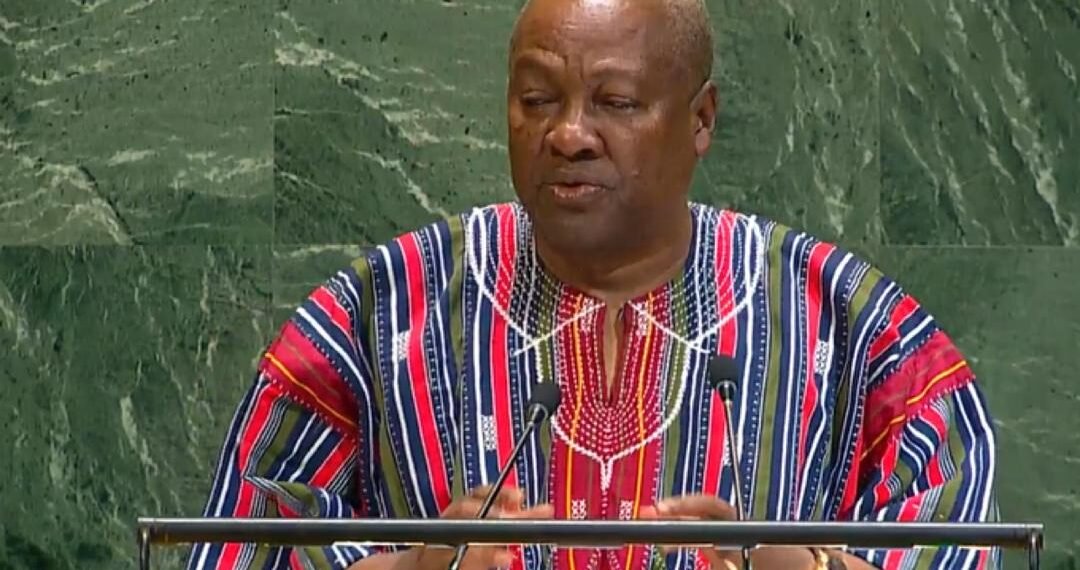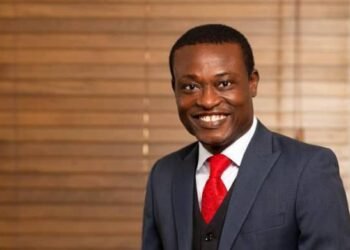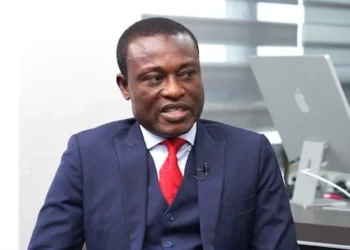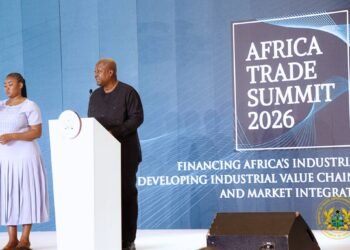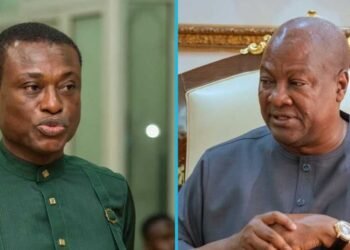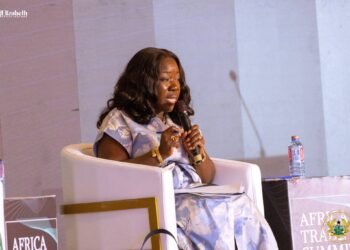Ghana’s President John Dramani Mahama delivered a powerful address at the 80th Session of the United Nations General Assembly (UNGA) in New York, calling for urgent reforms to the Security Council and a reset of the global financial system.
In a speech that blended historical context with forward-looking urgency, President Mahama declared that the future of the world is African, urging global leaders to acknowledge the continent’s central role in shaping humanity’s destiny.
Tracing Africa’s limited role in the founding of both the League of Nations in 1920 and the United Nations in 1945, President Mahama noted that only a handful of African countries—Egypt, Ethiopia, Liberia, and South Africa—were present at the UN’s birth.
He stressed that this marginalization was tied to the continent’s colonial subjugation after the infamous Berlin Conference of 1884, which carved Africa into colonies without the input of its people.
“In the past, the majority of the 54 nations that now comprise Africa were never offered a seat at the table where plans for a new world order were being drawn. But as fate would have it, the tables are turning and Africa’s role in the future shape of this world is going to be huge and consequential.”
Ghana’s President John Dramani Mahama
Drawing on UN projections, he highlighted that by 2050, Africa will account for more than a quarter of the world’s population and a third of all young people aged between 15 and 24. “The future of this world is African. Allow me to say this once again, a little louder for those of you in the back. The future is African,” President Mahama declared emphatically.
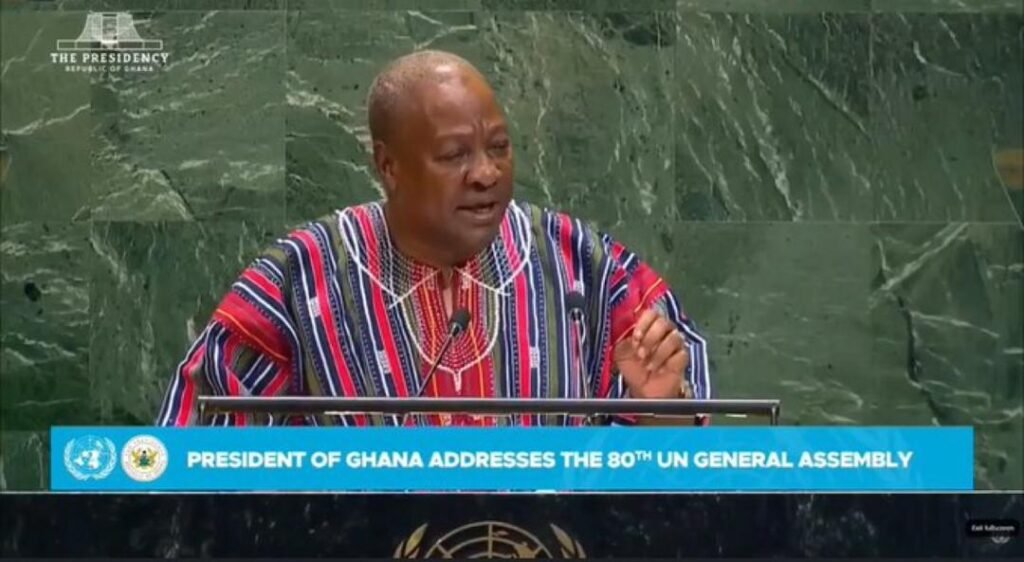
Africa Proven as a Catalyst: the Ghana Example
President Mahama argued that Africa is already proving to be a catalyst for systemic change—economically, socially, and ecologically—despite centuries of marginalization rooted in colonialism and imperialism.
He pointed to Ghana as an example of resilience, describing how his administration, since returning to power in January 2025, has implemented a “Reset Agenda” to stabilize the economy. He recalled the severe challenges his government inherited, including a rapidly depreciating cedi, high inflation, heavy debt, and low public morale.
“In just eight months, we have achieved significant reduction in inflation from 23.8 percent in December 2024 to 11.5 percent in August 2025, restoring price stability for our citizens”.
Ghana’s President John Dramani Mahama
He further noted that the Ghanaian cedi had performed strongly, at one point ranked by Bloomberg as the world’s best-performing currency. Sovereign credit ratings have improved, investor confidence has risen, and the government’s “24-hour economy” initiative promises to transform productivity and growth.
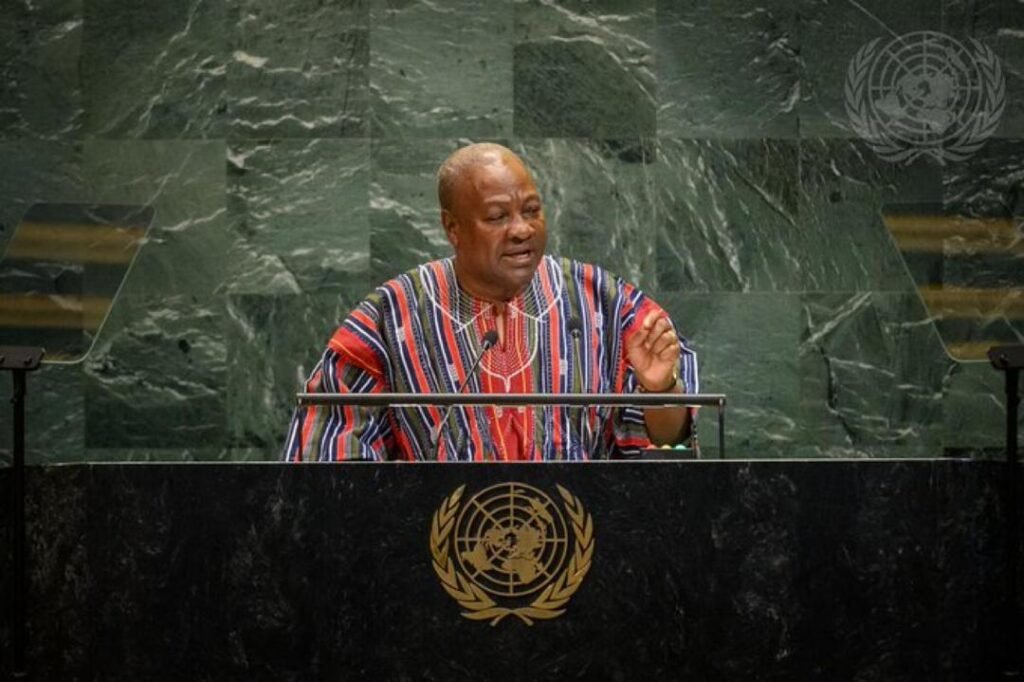
These successes, he argued, demonstrate Africa’s ability to chart a new course and demand greater global recognition. Against this backdrop, President Mahama called on the United Nations to undertake its own reset. The world, he observed, has changed dramatically since the UN’s founding in 1945.
“My first days in office after my return felt as though I had just awakened from a Rip Van Winkle-style sleep,” he said, noting the vast global transformations over just eight years, from digitization and artificial intelligence to the challenges of climate change and geopolitical tensions.
Security Council Reform
“Now imagine what it would be like after 80 years since the founding of the United Nations,” he said, underscoring how outdated its structures had become. Central to his message was the need for Security Council reform. Quoting directly from the UN Charter’s principle of sovereign equality, President Mahama questioned why Africa still lacks a permanent seat on the Council.
“A continent as large as Africa, with its numerous UN member states, would have at least one permanent seat on the Security Council,” he argued. He insisted that veto power should not be the preserve of five nations, nor should it be absolute.
“There must be a mechanism in this house for the General Assembly to challenge a veto. No single nation should be able to exercise an absolute veto to serve its own interests in a dispute”.
Ghana’s President John Dramani Mahama
Invoking Nelson Mandela’s 1995 call for the UN to reassess, redefine, and reshape its structures, President Mahama said Africa’s demand for fair representation has been consistent for decades.
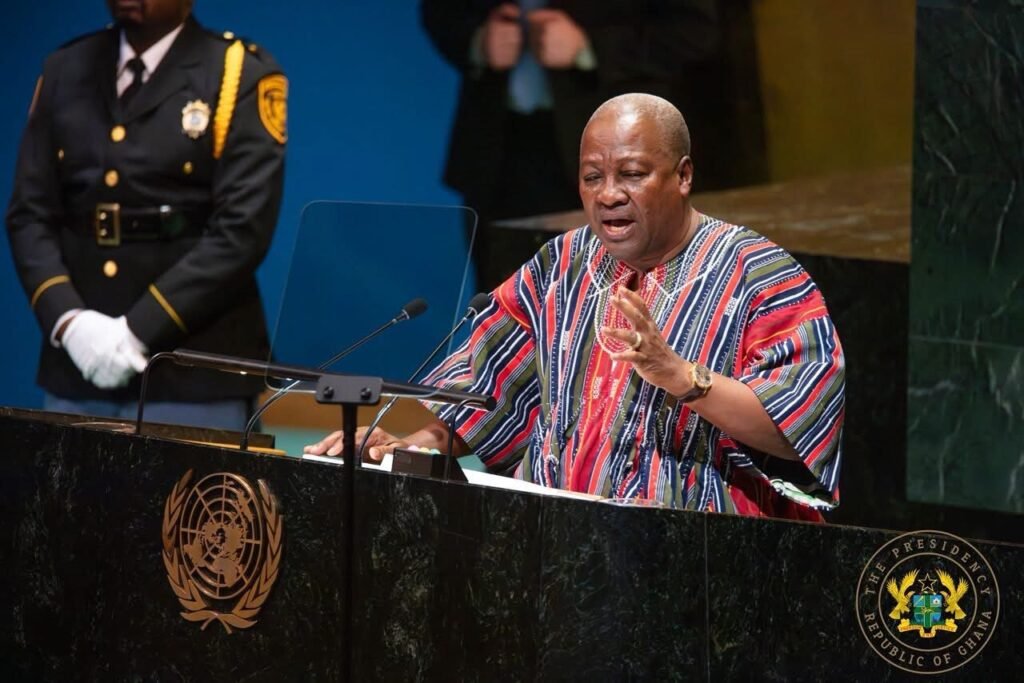
“Thirty years later, we African leaders are still making the same simple request for a permanent seat on the Security Council with the power of a veto. So today, Madam President, I stand here in this exact spot and ask the world, if not now, then when?”
Ghana’s President John Dramani Mahama
Reset of the Global Financial Architecture
Beyond Security Council reform, President Mahama also demanded a reset of the global financial architecture, which he said is “currently rigged against Africa.” He called for Africa to have a greater say in multilateral financial institutions, stressing that fairness and equity must underpin global economic governance.
He also renewed calls for the removal of the longstanding blockade on Cuba, recalling the solidarity Cuba had shown Africa during the struggle against apartheid. “The Cuban people shed their blood on African soil in the fight against apartheid, and indeed Cuba has been and continues to be a faithful friend of Africa,” he said.
President Mahama’s address also underscored the enduring relevance of the UN as the modern world’s “town square.” He likened the Assembly to the communal spaces in old villages and cities where citizens gathered to deliberate, celebrate, and resolve disputes.
In today’s world, he argued, digital technology gives the illusion of connectivity while often reinforcing division and disinformation. “The Internet, social media platforms, and artificial intelligence offer us the illusion of connectivity, when in fact what they do is reinforce isolation by using algorithms that ensure that we do not receive new ideas and perspectives,” he warned.
Concluding on a sober note, President Mahama cautioned that rising nationalism, economic instability, acts of aggression, and the erosion of multilateralism all echo the conditions that led to the collapse of the League of Nations.
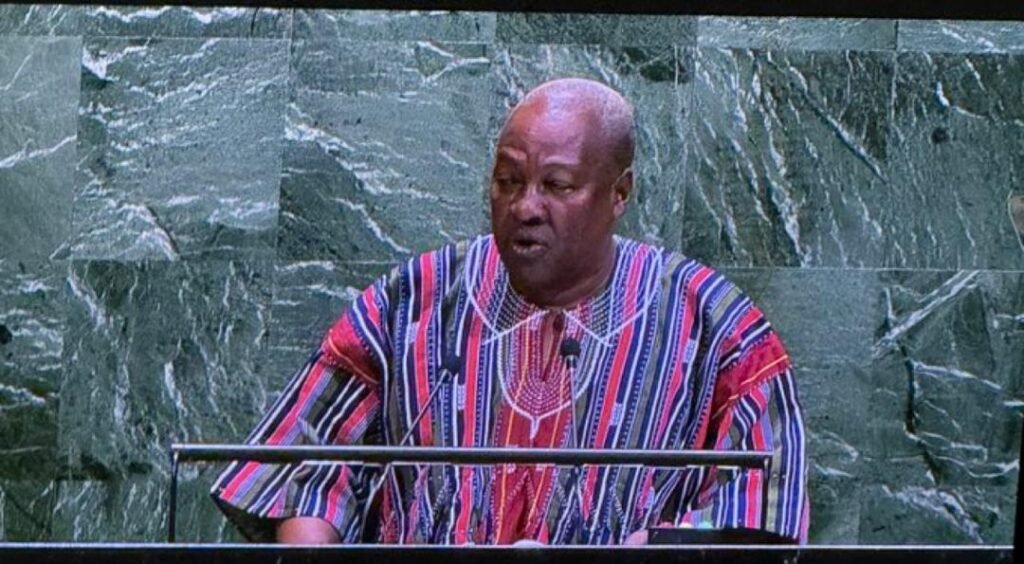
The survival of the United Nations, he argued, is essential to maintaining peace and stability in a rapidly changing world. “These are dangerous times,” he said.
“Our world is currently experiencing a rise in nationalism and economic instability. There’s a general breakdown of multilateralism, various acts of aggression have been committed against the sovereignty of others, and nations are attempting to circumvent the very safeguards that were put in place to prevent large-scale global conflict.”
Ghana’s President John Dramani Mahama
By demanding reform of the Security Council, fairness in global finance, and a renewed commitment to multilateralism, President Mahama positioned Africa not as a marginal actor but as a vital driver of the world’s future. His message was clear: the time for Africa’s rightful place at the center of global governance is now.
READ ALSO: Ato Forson Seals Third Debt Restructuring Pact with UK, Eyes $2.8bn in Infrastructure Boost

